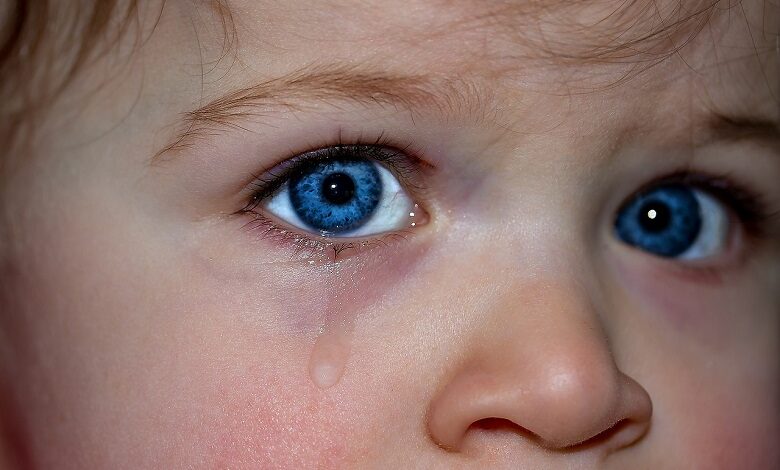Why your eyes get watery and how to prevent it

Watery eyes are uncomfortable, especially in public, and people start to think that you burst into tears for no reason. In addition, it is also a dangerous condition if you are driving a car because tears can make the picture cloudy or distort the distance. So this problem shouldn’t be considered trivial.
There are several reasons you might have watery eyes, and they can be prevented.
Foreign body in the eye
One of the most common reasons, and, by the way, one of the most underestimated in terms of danger. The fact is that not only dust, eyelashes, or midges can get into the eye, but also something more serious, such as chemical or metal shavings. It is easy to lose sight in one eye in the latter two cases, especially if you do not take emergency measures and rub the eye heavily.
If you feel pain in the eye and understand that the reason for this was the hit of a foreign object more serious than an eyelash, go to the doctor. As for preventing such an unpleasant situation, in places where you can run into metal shavings or chemicals, you should wear safety glasses.
Being in an environment that is too dry
The drier the air, the more moisture evaporates from the skin and mucous membranes, and the more actively the body tries to make up for these losses, because of which the lacrimal glands begin to secrete more lubricant for the eyes. The same thing happens in windy weather when moisture from the eyes also evaporates quickly.
This can be prevented with the help of glasses, which will not allow air currents to wind the mucous membranes. Low humidity can be raised with humidifiers.
Conjunctivitis
Many people mistakenly believe that conjunctivitis occurs only in children who constantly touch their eyes with dirty hands, but this is not the case. Conjunctivitis is an inflammation of the mucous membrane of the eye caused by a viral or bacterial infection and an allergic reaction. It can occur in people of any age.
With conjunctivitis, the eyes become inflamed, the whites become pink or red, and there is a sensation of itching, burning, or a foreign body. The body begins to produce more tear fluid to flush out the infection and get rid of the foreign body to cope with this.
How can this be prevented? Do not touch your eyes, even if they are clean, and take proper care of them.
Allergic reaction
If you feel cold symptoms for a long time, accompanied by itching in the mucous membranes, runny nose, sneezing, and increased lacrimation, this may indicate an allergic reaction.
First of all, you need to determine what exactly causes the allergy. This can be done using tests. After that, it is necessary to limit contact with the allergen, and in those moments when this is impossible, you need to take antihistamines prescribed by the allergist.
Blocking the lacrimal duct
The lacrimal duct is the opening through which fluid flows from the gland to the eyeball. If the passage is blocked by something, but not wholly, tears, instead of being distributed over the eye’s surface, flow down to the corners and then flow out when enough fluid has accumulated.
Anything from mucus from the eyes after sleep to inflammation, when pus collects in the corners of the eyes, can block the channel. Sometimes partial blockage of the lacrimal ducts can occur due to trauma, and then you have to resort to surgery.
Inversion of the eyelids
This disease is scientifically called entropion and is a disorder in which the edge of the eyelid and eyelashes are turned towards the eyeball. Because of this, the eyelids cease to perform their function, namely, the distribution of tear fluid over the eyeball and sweeping away excess moisture.
In addition, such a violation leads to constant eye irritation. The lacrimal glands begin to produce more moisture, preventing dry eyes and removing the foreign body with the liquid.
Such a violation is corrected only with the help of surgical intervention.
Trichiasis
In terms of the effect on the eye, trichiasis is similar to a twist of the eyelids. In this case, the eyelids usually work, and irritation is caused by incorrectly turned eyelashes, which begin to grow at the wrong angle towards the eyeball. With trichiasis, it seems to a person that there is something in the eye; there is increased sensitivity and lacrimation, sometimes pain when exposed to light. It is imperative to treat this disorder because it can cause the formation of a scar on the cornea.
To get rid of this disorder, the ophthalmologist must remove the eyelash. Don’t do it yourself, as improper removal can cause inflammation.
Blepharitis
Blepharitis is most commonly caused by Staphylococcus aureus and is a chronic inflammation of the eyelid margins. The eyelids are swollen, usually near the eyelashes, and the eyes burn, itch, crust, and drain large amounts of tears. Chronic infectious and allergic diseases, vitamin deficiency, and other health problems provoke the development of blepharitis. Most often, blepharitis occurs with reduced immunity.
To avoid the development of blepharitis, you need to maintain immunity in good shape and treat eye diseases in time.
Dysfunction of the meibomian glands
The meibomian glands are located at the edges of the eyelids and are sebaceous glands that produce the secretion of a fatty nature. It lubricates the edges of the eyelids, prevents them from being wetted by tears, and prevents the water layer from evaporating and drying out the eye.
Suppose these glands partially or completely stop producing secretion. In that case, the eyes begin to irritate and watery as the production of fluid tear increases due to the faster drying of the eyeball.
Few have heard of meibomian gland dysfunction, yet this is one of the major causes of dry eyes and profuse lacrimation. Treatment should be carried out under the supervision of an ophthalmologist.
Other causes not related to eye disease
Many diseases cause watery eyes, such as chronic sinus infections, thyroid problems, and rheumatoid arthritis. Therefore, if the ophthalmologist does not find the reasons directly in the eyes, you need to undergo a detailed examination of the whole body to understand what causes lacrimation.




